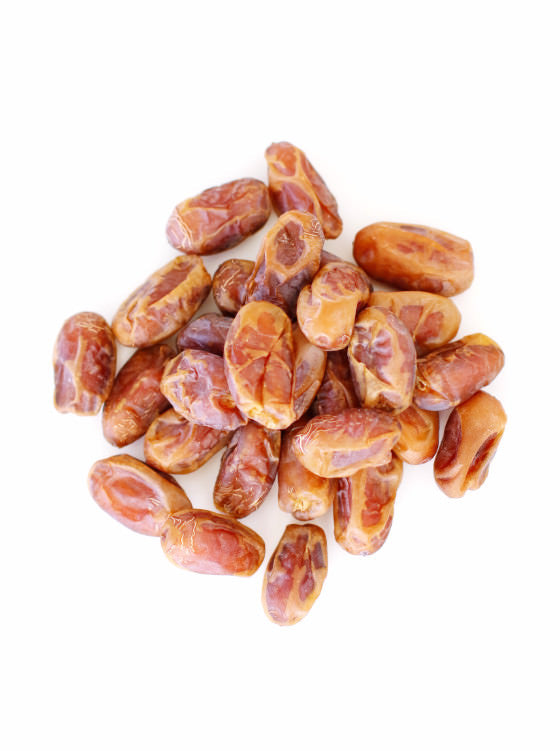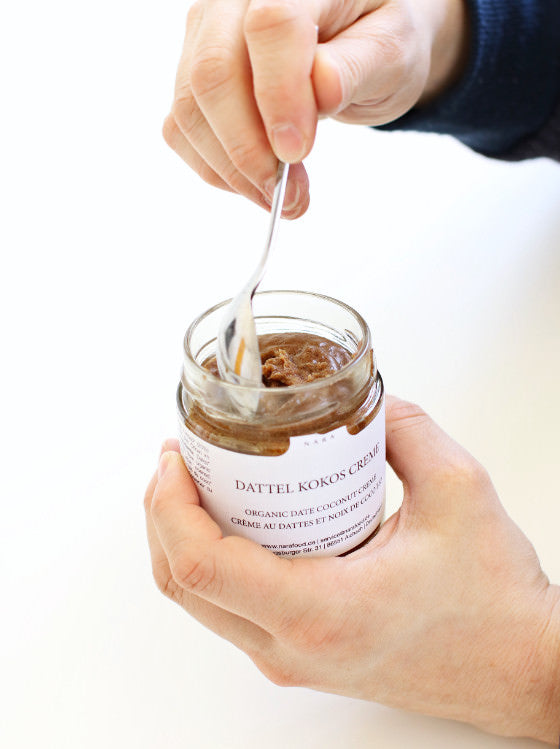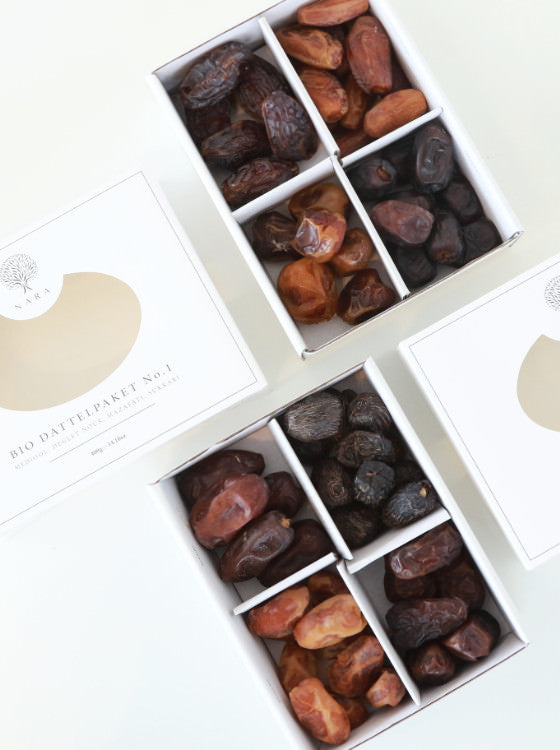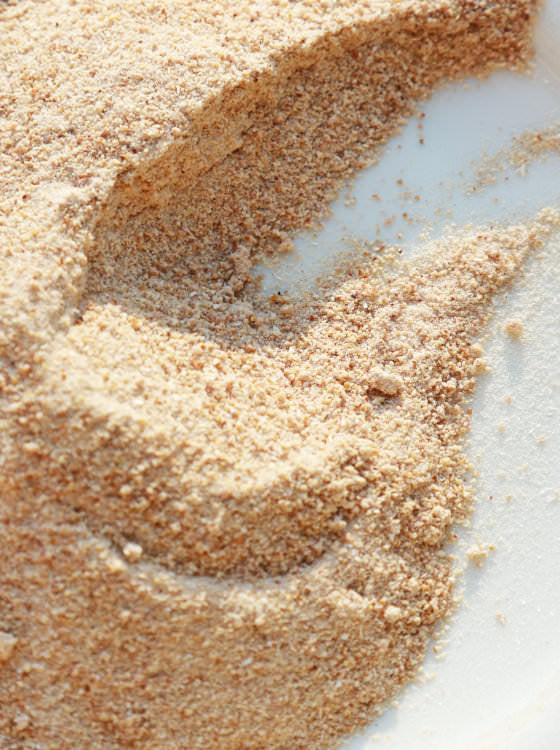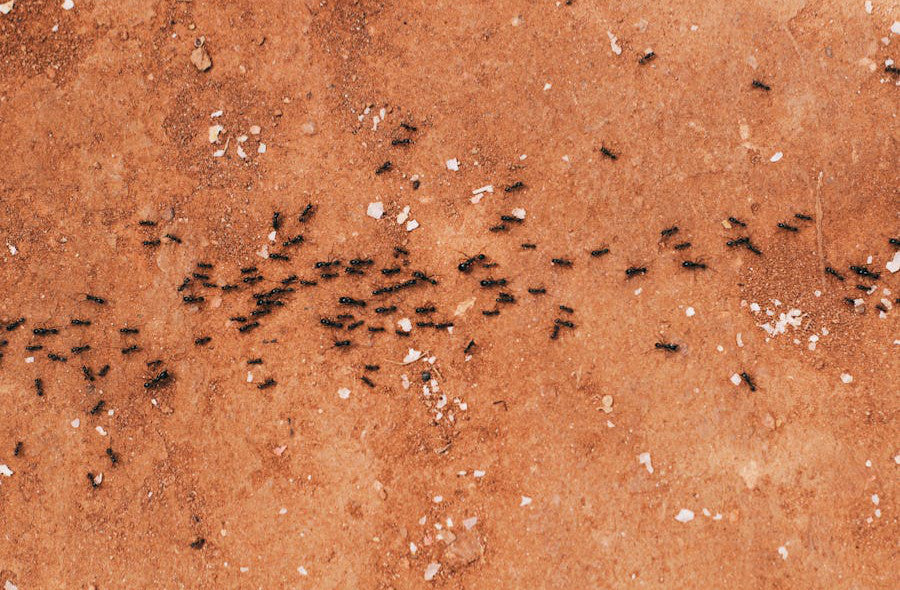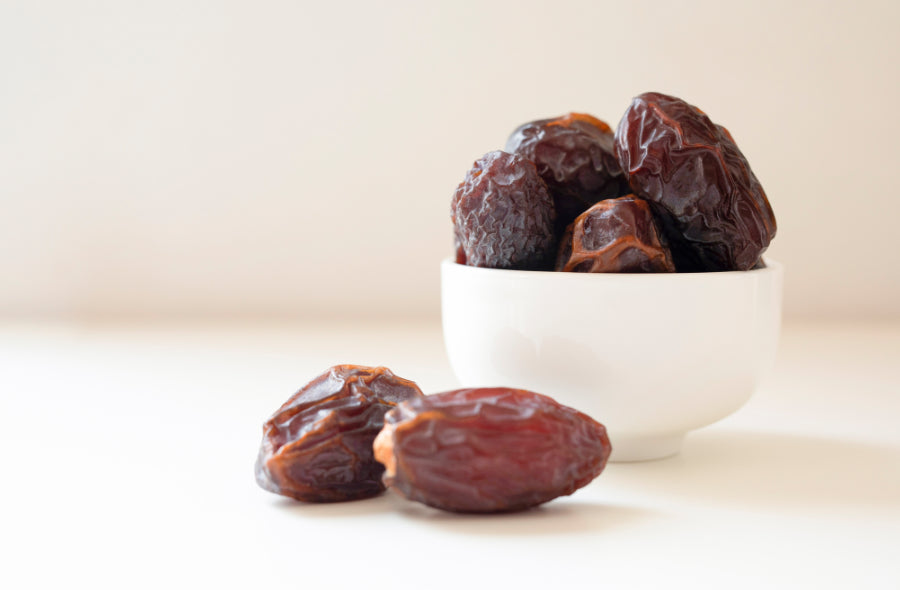Fresh or dried dates are popular foods and snacks for between meals. Their high glucose and fructose content makes them particularly sweet. This makes it all the more annoying to discover insects on dates. As the nutritious "bread of the desert" is not only popular with humans, this can unfortunately happen from time to time.
Here you can find out more about possible insects in dates, common confusions, legal regulations and how we deal with them at NaraFood.
Possible types of pests in dates
In principle, dates have a comparatively long shelf life due to their high sugar content and when stored in a cool place - dried dates last significantly longer than fresh ones. In rare cases, however, you may come across unusual structures in a delivery that raise doubts as to whether your dates are infested with insects .
The pests extract the syrup from the fruit, which reduces its characteristic sweetness, size and nutritional value. The consequence: traces of feeding, excrement or remains of the insects remain in the dates.
Small black beetles or moths are usually the "culprits" and can be clearly identified as such or by their eggs. The "Deglet Nour" variety is most likely to be affected.

→ The visible difference between eggs (left) and the black beetles (right) on the Deglet Nour variety
It is very rare to find maggots, worms or even spider mites in dates. The latter are characterized by fine webs that are woven between the fruit. So far, we have seen this very occasionally in the "Mazafati" variety.

→ Thin white threads: so-called webs
Wasps are also often associated with insect damage to dates. This false association arises from the recurring confusion between dates and figs. In a nutshell: So-called "fig wasps" are an essential part of fig pollination and therefore in no way pests.
Frequent confusion: We clear things up
Dates are not only delicious, but also fascinating in their diversity and natural processes. Sometimes, however, these processes can lead to phenomena that may appear worrying at first glance. For this reason, we are clearing up a few confusions.
Dates with insect eggs vs. sugar crystals
Some varieties, such as "Mazafati" or "Kholas", tend to form spherical sugar crystals inside and outside the fruit the longer they are stored. These are often mistaken for insect eggs. So take a close look before you throw a whole pack of dates in the bin. You may be able to eat them without worrying.

→ This is what safe sugar crystals can look like
A little rule of thumb to help you:
If it is a date with insect eggs, the eggs should crack and burst open when crushed. If this is not the case, it is more likely to be sugar crystals.
Black mold?
Occasionally, black powder may be found inside a Medjool date. Contrary to initial assumptions, this is not mold, but the result of an insect bite while the fruit was growing on the palm. Don't worry: in such cases, the insect responsible has long since disappeared.

→ A sliced date with "black powder" inside
This appearance can be clearly distinguished from real mold, which typically appears as a whitish structure. Fortunately, this change is limited to the individual fruit and has no effect on the quality of the other dates in the packaging.
When is it still advisable to eat them?
If the pests can be clearly identified as such, we generally advise against eating them. Our recommendation: Open each date beforehand and examine the packaging carefully - is only one fruit affected or several?
If there is an infestation of spider mites, it may be necessary to dispose of the entire pack. The same applies to dates with mold.
Otherwise, it may be sufficient to throw away the infested date or part of it - as in the case of fruit with "black powder" inside. It would be a shame to simply throw away food that is safe to eat!
Prevent insect infestation in organic farming
Whether dates with insect eggs or dates with maggots - the general occurrence of insect damage cannot be completely ruled out. As our dates come from organically sustainable cultivation and are not treated with insecticides, traces of insects can still be found on individual dates despite our efforts - but only rarely on an entire pack.
In cooperation with our partner farms, we therefore attach great importance to taking appropriate measures to minimize the effects of insect infestation:
- Natural insect repellent: on our Iranian permaculture plantation, citrus fruits are grown between the date palms to keep all insects away from the delicious fruit.
- Regular checks: In addition, the panicles of all the palms are checked at regular intervals and samples of our dates are taken. If an infestation is detected, the panicle is removed. After the date harvest, our produce is carefully checked for insect bites.
- Cool storage: Some signs of insect damage are invisible even to the keenest eyes. Keeping the fruit in a cool place throughout - or freezing certain varieties - therefore ensures that insects and their eggs do not survive if they are found in the fruit.
What does the law say?
There is currently no official and legally binding upper limit for insect damage to dates. However, the standard of the Economic Commission for Europe (UNECE) stipulates that up to 12% of dates in a batch may have traces of insect infestation (as of 2021).
NaraFood: dates with quality
As a young family business from Bavaria, we are passionate about delivering organic, sustainably grown food directly to your home. We want you to be able to buy dates that impress you with their first-class quality.
For this reason, we only consider a possible insect infestation to be tolerable if less than 10% of a pack is affected. If this value is exceeded despite our precautionary samples, we will do everything we can to enable you to make a complaint for the corresponding proportion. As a rule, we will issue a voucher for the corresponding value. We will also be happy to help you at any time if you have any questions or concerns. If you suspect insects in your pack of dates, please send us a photo of them directly so that we can assess the case.
Natural, tasty, versatile - which variety is your favorite?
Nature does provide insects from time to time, but fortunately it also presents us with a wonderful range of flavor profiles in the different date varieties. Discover the variety in our store and convince yourself of their delicious organic quality!

